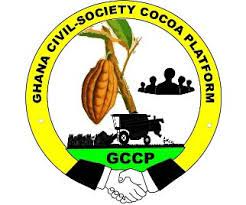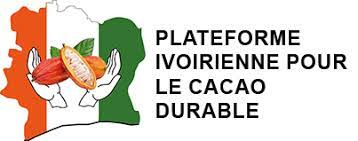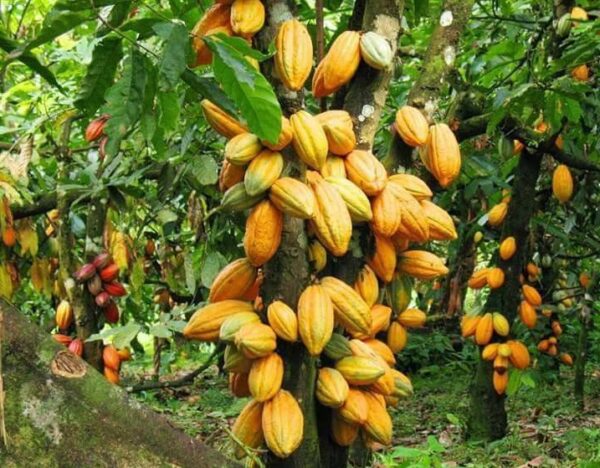DECLARATION OF THE COCOA PLATFORMS OF THE CIVIL SOCIETY OF COTE D’IVOIRE/GHANA IN SUPPORT OF THE BOYCOTT OF THE MEETING OF THE PARTNERS OF THE WORLD COCOA FOUNDATION IN BRUSSELS BY THE GOVERNMENTS OF IVORY COAST AND GHANA


The Ivorian Platform for Sustainable Cocoa and the Ghana Civil-society Cocoa PlatformThe World Cocoa Foundation (WCCF), comprising farmers, farmers’ professional organizations (grassroots cooperative societies, Unions and Federations of Cooperatives), small-scale processors, media and civil society organizations working in the cocoa sector commend the government and regulators of our respective countries for the bold and unprecedented decision to boycott the World Cocoa Foundation Partners’ Meeting taking place in Brussels on October 26-27, 2022
We may not always align with the decisions of COCOBOD and the CCC, but we fully support this action and the reasons given for the boycott.
We believe it is high time that the world recognizes the double standards of the cocoa and chocolate multinationals, especially with regard to the fixing of cocoa prices and the deterioration of the living conditions of cocoa farmers due to their selfish interests and their quest for profit maximization without any willingness to share the benefits along the value chain.
Côte d’Ivoire and Ghana account for 65% of the world’s cocoa production, but farmers in these two countries earn less than 6% of the chocolate industry’s total revenue, which is valued at about $130 billion per year. New studies have shown that the share of “cocoa farmers” in the overall chocolate industry has decreased dramatically over the years as traders, brands and retailers have accumulated super-profits. For example, according to Fairtrade, when cocoa prices were high in the
In the 1970s, cocoa farmers earned up to 50% of the value of a chocolate bar. This figure dropped to 16% in the 1980s and today farmers receive only about 6% of the value. This has resulted in high levels of poverty and hardship for cocoa farmers in the world’s two largest cocoa-producing countries.
Today, cocoa farmers do not live, they only survive.
At the top of the list of reasons for this unfortunate situation is the refusal of
cocoa and chocolate multinationals to pay the right price for cocoa beans. Most hide behind their so-called sustainability programs to avoid paying farmers a living wage. What is even more discouraging is that Ghana and Côte d’Ivoire are forced by these multinationals to sell their cocoa beans below the prevailing market price, a market price that is itself already reduced.
They have also used unfair market tactics, such as negative origin differential mechanisms, to further impoverish small local cocoa farmers by taking away national premiums while claiming to pay the decent income differential (DID) introduced about two years ago.
DRD has finally become a figment of the imagination and not a tangible reality in the lives of cocoa farmers.
Governments and regulators in both countries continue to be blamed by stakeholders in the countries for their role in failing to set farm-gate prices at levels that guarantee a living wage for cocoa farmers. But the point is that governments and regulators can’t give what they don’t have, and current market prices make it almost impossible to set farmgate prices at levels that would provide a decent income for farmers. It is rather astonishing and unfair to note that the prices of the other products that make up the chocolate bar, namely milk and sugar produced in the consuming countries, have all increased astronomically, while the price of cocoa is constantly falling.
By boycotting this flagship private sector gathering in Brussels, the governments of Côte d’Ivoire and Ghana are sending a strong signal, but it is also a cry from the heart.
The issue of cocoa price must be placed at the center of the discussion on cocoa sustainability as an issue of social justice.
As a civil society, we fully support this position and hope that the world will take note and denounce the private sector for its infamous and unfair cocoa pricing practices.
Thank you.
For more information, please contact :
Ghana:
Nana Kwasi Barning Ackah
Coordinator, GCCP
nanakwesi@sendwestafrica.org
+233 0247452948
Obed Owusu-Addai
Campaigner, EcoCare Ghana
obed@ecocareghana.org
+233 0240355320

Ivory Coast:
Pauline Zei
National Director, Inades Formation, ICDP Coordinator
pauline.zei@inadesfo.net
+225 0101044644
Bakary Traore
Campaigner, Executive, IDEF NGO
bakary.traore@ongidef.org
+225 0749102193

For immediate release
October 24, 2022
Accra and Abidjan









